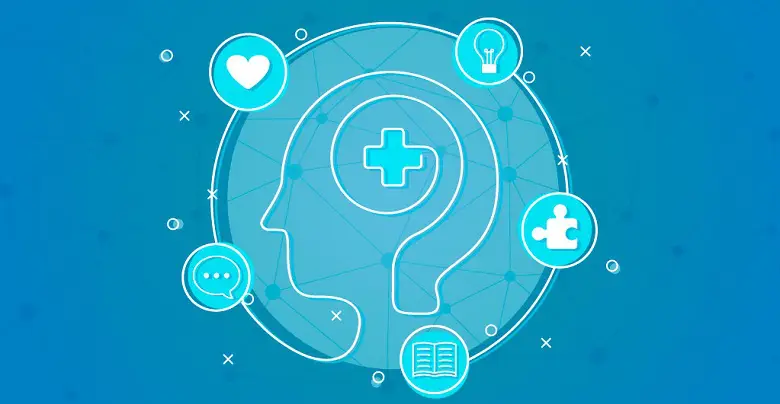Mental Health Matters; Habits that can Improve Mental Health

Our mental health is something that influences our way of thinking and the lifestyle we follow. It affects our mental and physical well-being and has a direct effect on our potential to deal with stress, face challenges, and maintain personal relationships. It reduces our confidence to fight back with setbacks of life, and we cannot face hardships. Robust mental health doesn’t mean that a person is free from depression or any psychological issue for that matter. Instead, it suggests that the absence of a mental health issue refers to having a positive perspective towards life. People who have a healthy mindset tend to have:
- Contentment and Satisfaction.
- Liveliness and a Happy Go Lucky Mindset.
- Potential to deal with stress and come out of it heartily.
- They are sensible about how to balance daily life activities and relationships.
- They are flexible to adapt to changes and learn about new things.
- Being Confident and have Higher Self-Esteem.
What can we do to Maintain a Healthy Mindset?
There are days when dealing with mental health, and finding ways to improve it seems like a struggle. There is much pressure that we feel in the back of our mind when we have a tough day, and that affects our routine as well, resulting in anxiety, restlessness, and lack of sleep. Now the fundamental question that arises here is how to do the bare minimum to improve our mental health.
- Don’t Be Shy to Ask for Help
Though mental health issues are quite common these days, there is still a stigma that keeps revolving around this subject. People who have been suffering from mental illness and feelings of anxiety and restlessness find it challenging to reach out. Approximately 75% of Americans and Europeans are not seeking treatment for such conditions. If you are at a very early stage of facing mental health issues, then necessary help, like having a support network of friends and family, can be a great help rather than seeking direct medical attention. But if the cases worsen, and you notice severe symptoms like lack of sleep, change in eating habits, and being disinterested in something that you love doing, then seeking help from a professional is a must.
- Eat and Exercise
We are all aware of the importance of eating healthy. The things that we consume daily affect our mental health. Recent researches have proved that there is a secure link between high processed sugary food and mental illness. If we want to be healthy both mentally and physically, then it becomes indispensable for us to consume nutritious food. Along with a proper diet, an excellent exercising routine helps us improve mental health in a better manner. As much as a diet is essential, exercising is equally a significant factor that contributes to forming a healthy body along with that it also helps us improve our mental health. Half an hour exercising routine can help our body to release endorphins that are needed to uplift our mood.
- Adopt a New Skill or Hobby
Whenever we feel low, it becomes difficult to focus on things we can do; instead, our mind consistently focuses on things we can’t do. If your brain tells you that you have not done anything significant that takes you closer to achieving your goal, trying to learn a new skill or hobby can be a great help. We all have various areas where we can work and find ways to improve. At times keeping ourselves busy with work and hobbies of our interest, we can uplift our mood easily. Whether we are learning about budgeting, a new language, or focusing on time management skills– the smallest improvement in our habits and lifestyle can gradually release stress in our day-to-day lives.
- Get a Proper Sleep
There are a couple of things that are a little more important than just a “goodnight sleep” that improves mental health. On the contrary, insomnia is a significant factor that affects mental health and causes significant mood swings. Lack of sleep not only makes us feel tired but compels us to procrastinate as well. Our primary goal should be to improve our sleeping schedule. We need to ensure that we go to bed on time and get sufficient sleep.
- Keep Yourself Hydrated
Sounds simplistic but, trust me – It’s Quite Effective. Drinking plenty of water can instantly improve our mental health because our brain comprises approximately 75% of water. Staying hydrated improves our concentration, mood, and cognitive functioning as well.
Impact of COVID-19 on Mental Health
The untimely virus outbreak has not just resulted in an economic downturn but has also impacted our mental health. Approximately 45% of adults in the United States experienced a negative impact on their mental health due to the pandemic. The measures taken to slow down the spread are likely to affect our mental health. The psychological burden is likely to increase due to social distancing, school closures, and shelter-in-place orders, leading to isolation and financial distress. Feelings of excessive anxiety are quite common since people are concerned about the uncertain repercussions of the pandemic.
It’s dangerous for those who have Chronic Mental Illness (CMI). The pandemic has strongly affected the ones who have major anxiety and personality disorders. It triggers the ones easily who are suffering from disorders like OCD, ADHD, Bi-Polar Disorder, and Substance Abuse. We can’t deny that social distancing is good for our safety during the pandemic, but on the contrary, it increases feelings of loneliness and isolation, stress, and fear. All these things can trigger issues and have a massive impact on our mental health instantly.
If you know someone suffering from mental illness, it is about time you step up and help them to cope with that. Please make sure you are more empathetic towards someone who has a mental illness, try to understand what they are feeling. The idea here is not to provide them with a solution, but make them feel secure about your presence in their lives. A simple act of being connected and keep in touch can do wonders.



